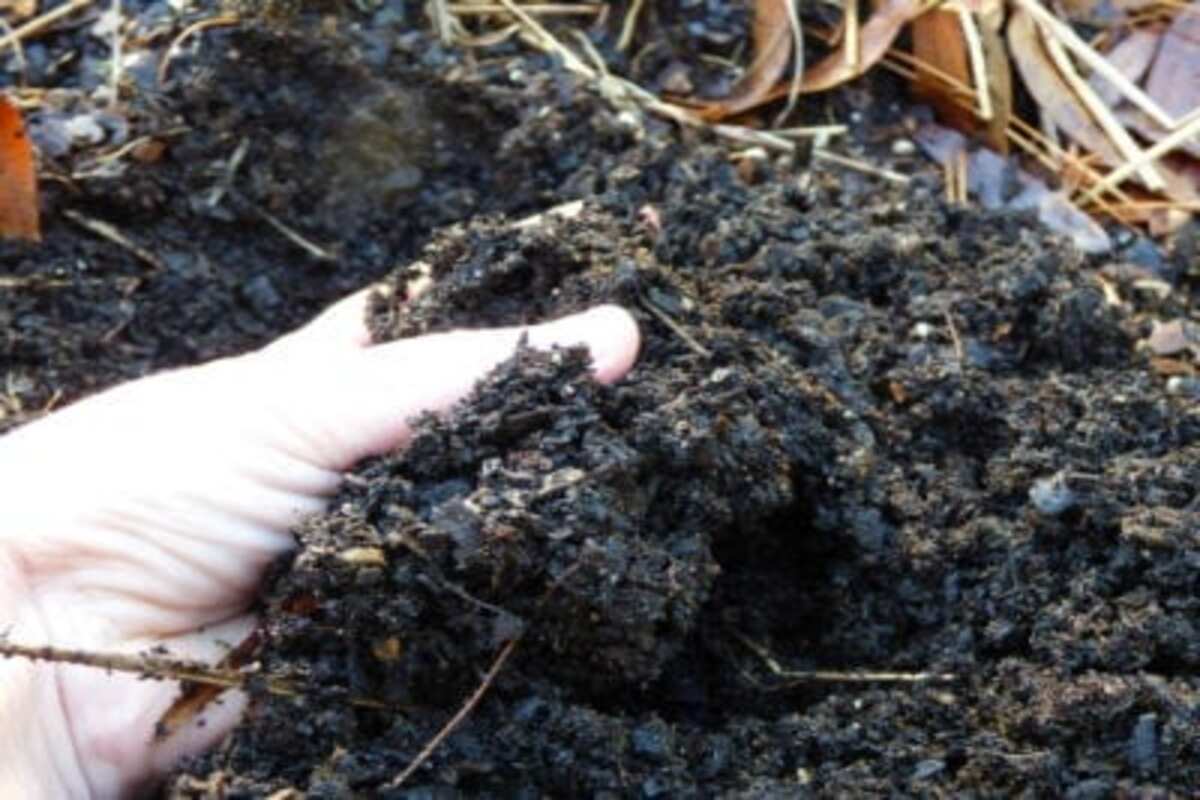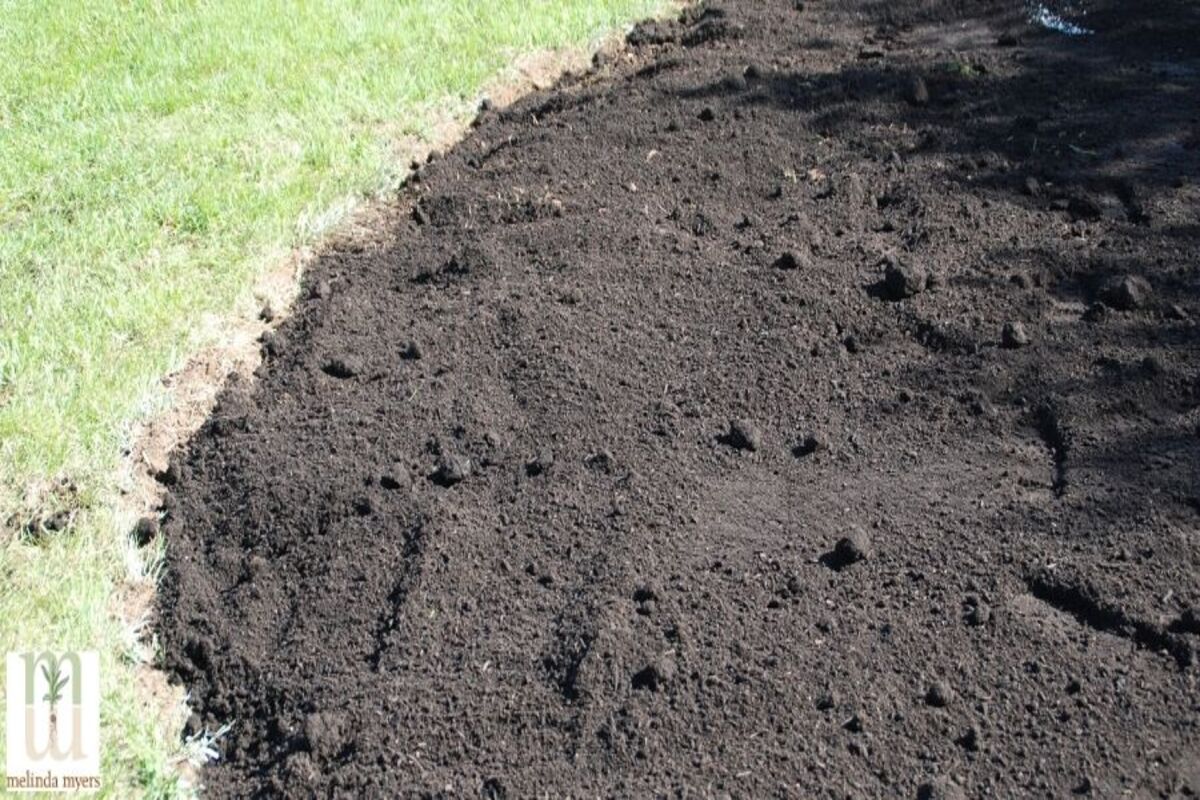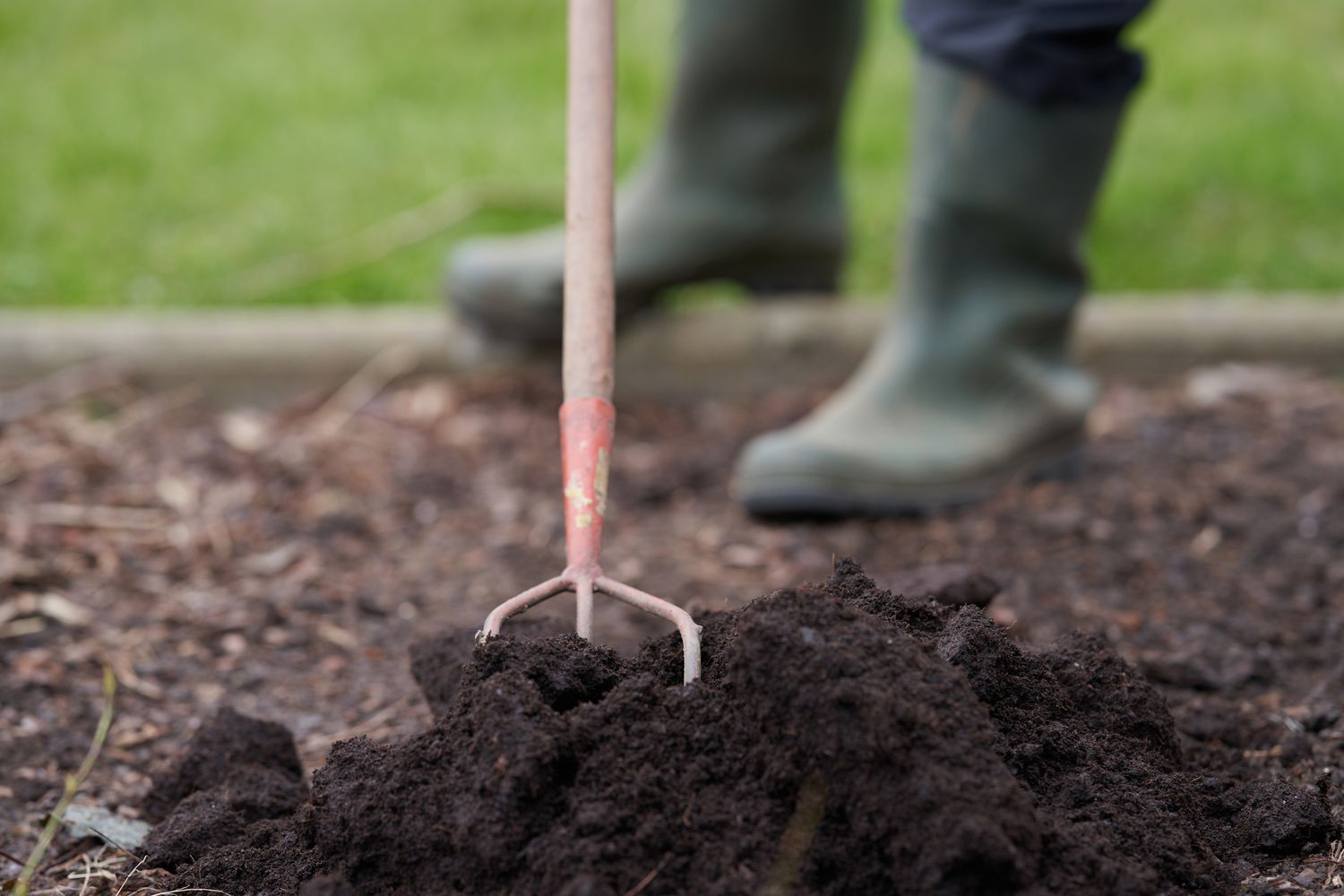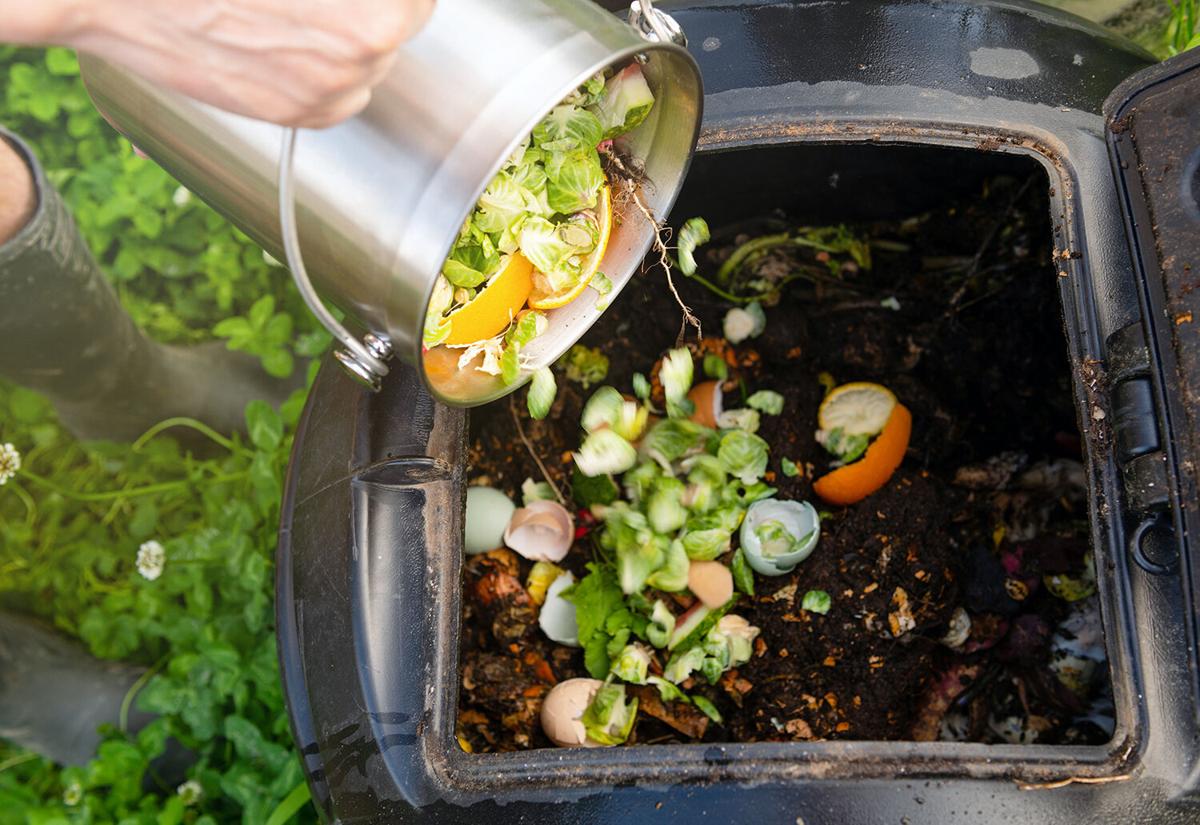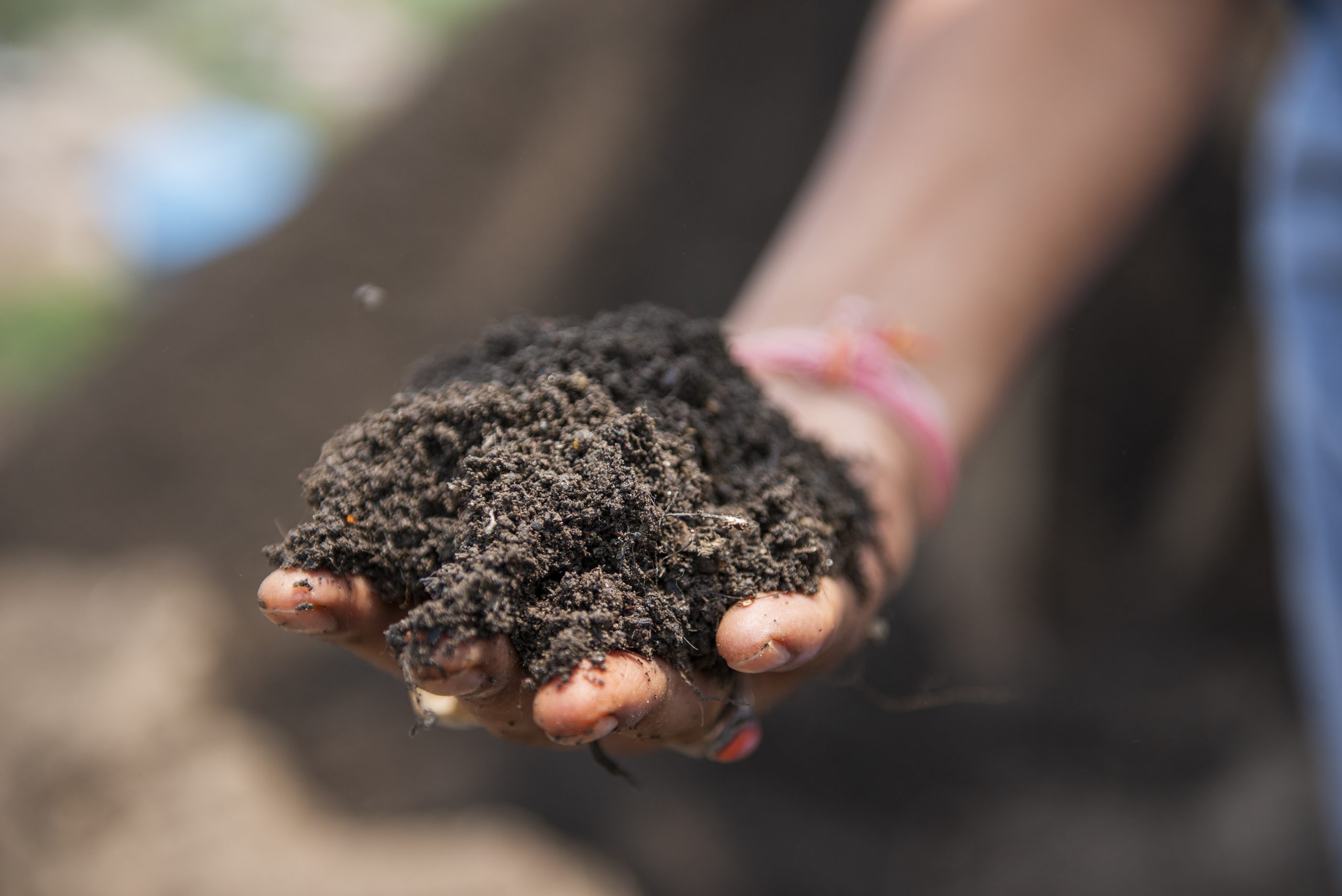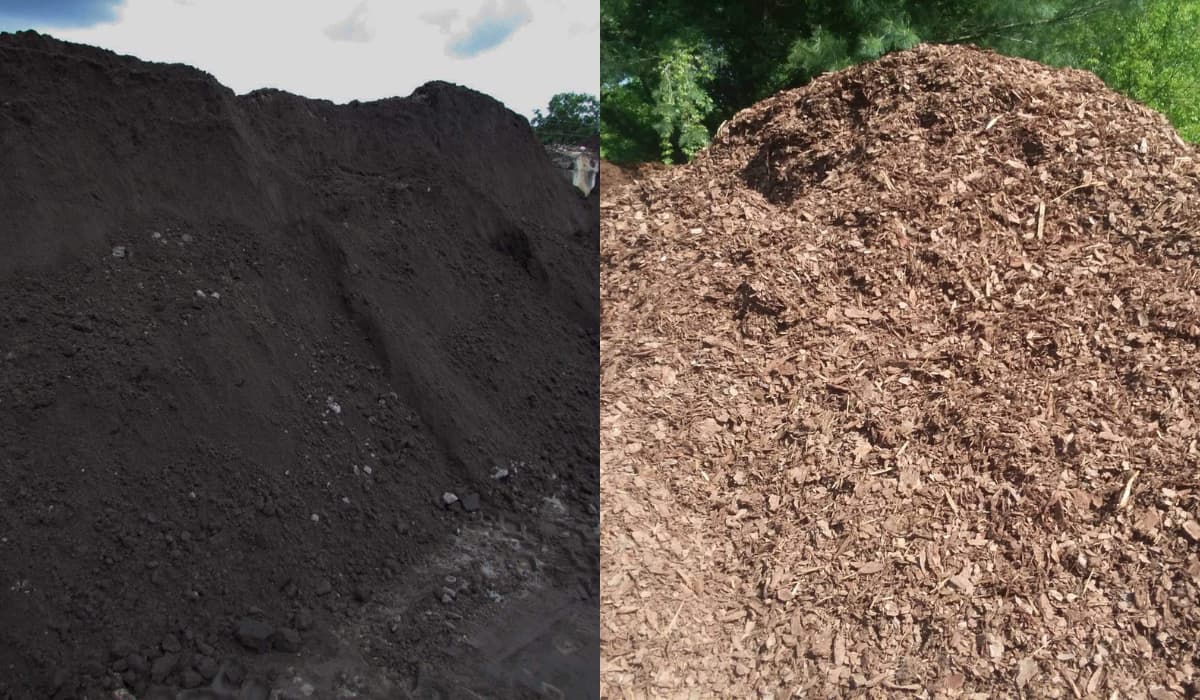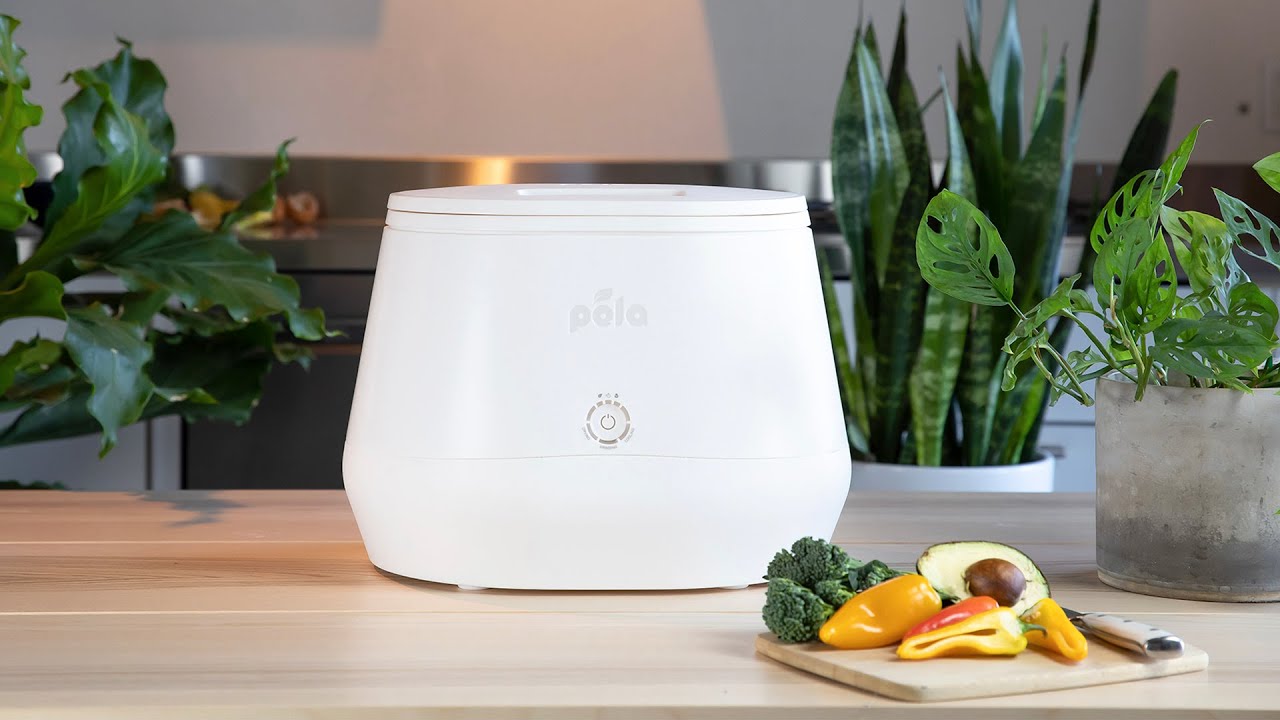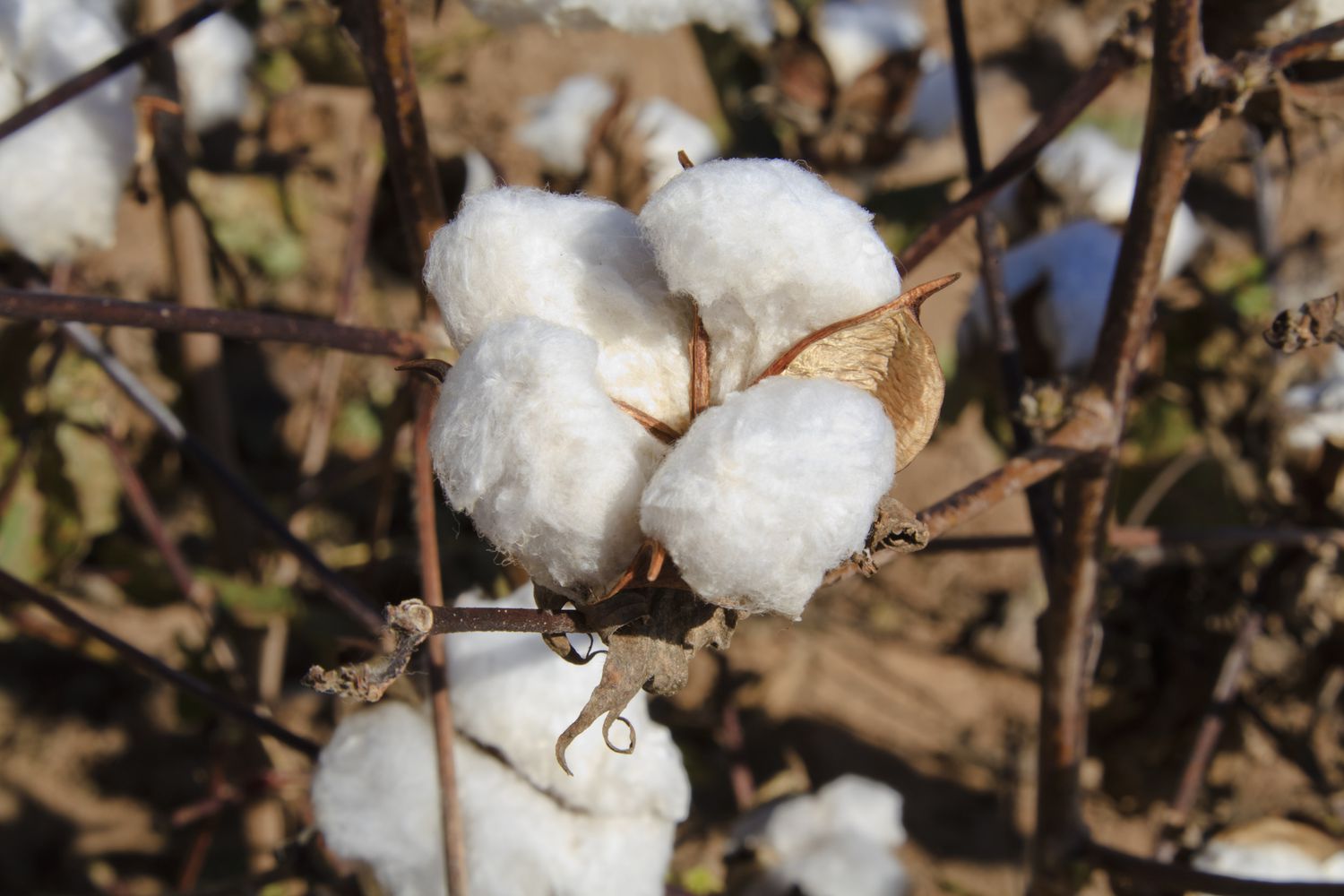Home>Gardening Tips and Tricks>Eco-Friendly Gardening>What Is In Compost Starter
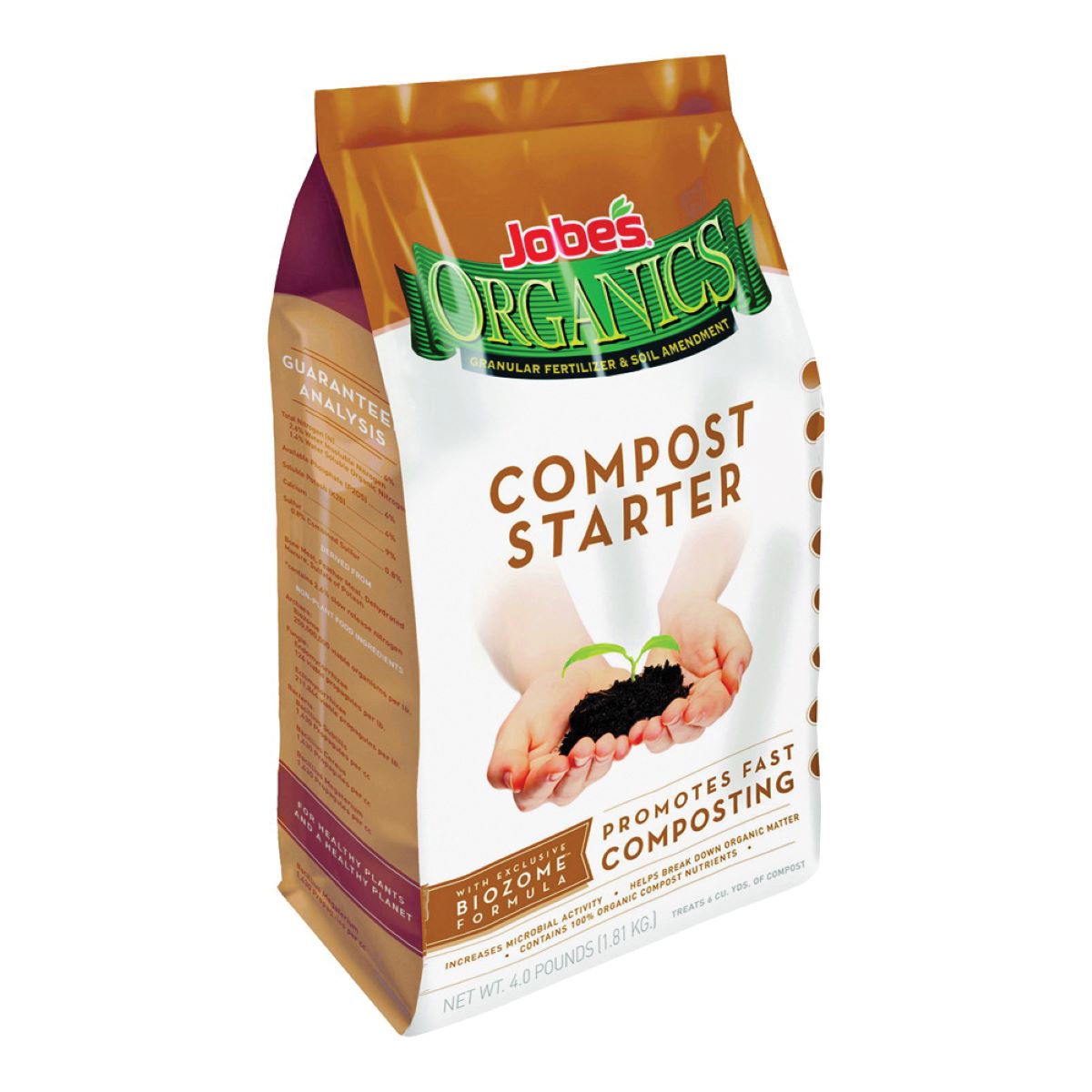

Eco-Friendly Gardening
What Is In Compost Starter
Modified: January 22, 2024
Discover how to create nutrient-rich soil for your garden with eco-friendly compost starter. Improve plant growth and reduce waste.
(Many of the links in this article redirect to a specific reviewed product. Your purchase of these products through affiliate links helps to generate commission for Chicagolandgardening.com, at no extra cost. Learn more)
Table of Contents
- Introduction
- What is Compost Starter?
- The Purpose of Compost Starter
- Types of Compost Starters
- Organic Ingredients in Compost Starters
- Benefits and Importance of Compost Starters
- How to Use Compost Starter
- Common Mistakes to Avoid When Using Compost Starter
- DIY Compost Starter Recipes
- Commercial Compost Starter Brands
- Conclusion
Introduction
Welcome to the world of eco-friendly gardening! If you’re passionate about sustainable living and want to make a positive impact on the environment, then incorporating eco-friendly gardening practices is a great place to start. One essential aspect of eco-friendly gardening is composting, which not only helps reduce waste but also enriches the soil with essential nutrients.
To accelerate the composting process and ensure successful decomposition, many gardeners turn to compost starters. Compost starters, also known as compost accelerators or activators, are products that contain a mix of organic materials designed to kick-start the decomposition process. They provide the necessary nutrients and microorganisms that break down organic matter effectively.
In this article, we will delve into the world of compost starters, exploring their purpose, types, organic ingredients, benefits, and how to use them. Whether you’re a seasoned gardener or just getting started, understanding compost starters will enable you to create nutrient-rich compost for your garden while minimizing waste.
So, let’s dive in and discover the secrets of compost starters and how they can revolutionize your gardening practices!
What is Compost Starter?
Compost starter, as the name suggests, is a product that kick-starts the composting process by providing the necessary ingredients and microorganisms for decomposition. It is a convenient way to accelerate the natural breakdown of organic matter into nutrient-rich compost, saving time and ensuring a more efficient composting process.
A compost starter typically contains a blend of organic ingredients, such as nitrogen-rich materials, carbon-rich materials, and beneficial microorganisms. These components work together to activate the decomposition process and create an optimal environment for microorganisms to thrive.
While it is possible to create compost without a compost starter, using one can significantly speed up the process. Compost starters provide a concentrated dose of beneficial bacteria and fungi that help break down complex organic compounds into simpler forms that plants can readily absorb.
Compost starters come in various forms, including powders, granules, liquids, and pre-mixed compost activators. Each type has its advantages and can be used in different composting setups, whether it’s a small-scale backyard compost bin or a large-scale compost pile.
Additionally, compost starters may contain various organic materials, such as animal manure, plant-based materials, and even food waste. These ingredients not only provide essential nutrients for microbial activity in the compost but also add diversity to the microbial community, resulting in a more balanced and fertile end product.
Now that we have a basic understanding of what compost starter is, let’s explore its purpose and how it can benefit your gardening endeavors.
The Purpose of Compost Starter
The primary purpose of using a compost starter is to accelerate the decomposition process and create nutrient-rich compost at a faster rate. By providing a concentrated dose of essential ingredients and microorganisms, compost starters give the compost pile a jumpstart, ensuring that organic materials break down more efficiently.
Composting without a starter can take several months or even a year for organic matter to fully decompose. However, with the use of a compost starter, the decomposition time can be significantly reduced, allowing you to obtain nutrient-rich compost in a matter of weeks.
Compost starters also help to maintain the optimal moisture and temperature conditions within the compost pile. The microorganisms present in the starter consume organic materials more rapidly when conditions are favorable, leading to faster decomposition. Additionally, the organic materials in the compost starter contribute to creating a well-balanced carbon-to-nitrogen ratio, which is crucial for proper decomposition.
Another purpose of using compost starter is to introduce beneficial microorganisms into the compost pile. These microorganisms, such as bacteria and fungi, aid in breaking down complex organic compounds and transforming them into simpler forms that plants can easily absorb. They also help to suppress harmful pathogens and enrich the compost with beneficial enzymes and hormones.
Incorporating a compost starter also helps to enhance the overall quality of the compost. The organic ingredients in the starter provide essential nutrients, such as nitrogen, phosphorus, and potassium, which are vital for plant growth and development. They also contribute to improving the structure and texture of the compost, making it more crumbly and easier to handle.
Lastly, using a compost starter promotes sustainability by diverting organic waste from landfills. By composting organic materials, you can reduce greenhouse gas emissions and minimize the need for chemical fertilizers, resulting in a more environmentally friendly gardening approach.
Now that we understand the purpose of compost starters, let’s take a closer look at the different types available in the market.
Types of Compost Starters
Compost starters come in various forms, each with its own advantages and suitability for different composting setups. Understanding the different types of compost starters can help you choose the one that best fits your gardening needs. Here are the most common types:
- Powdered Compost Starters: These are dry, granular products that are sprinkled onto the compost pile. They are typically made from a blend of organic materials such as animal manure, plant-based matter, and other composted materials. Powdered starters are easy to apply and mix into the compost pile, ensuring even distribution of nutrients and microorganisms.
- Liquid Compost Starters: Liquid starters are concentrated solutions that are diluted in water and then applied to the compost pile. They often contain active microorganisms in a suspended or dormant state, which become active once they are introduced to moisture and organic matter. Liquid starters are convenient to use, especially for larger composting systems, as they can be easily applied using a sprayer or watering can.
- Granular Compost Starters: Similar to powdered starters, granular starters are small pellets or granules that are scattered over the compost pile. These granules slowly break down and release nutrients and microorganisms over time. Granular starters provide a slow-release effect, ensuring a continuous supply of beneficial elements for the compost pile.
- Pre-Mixed Compost Activators: These compost starters are ready-to-use formulations that contain a balanced blend of organic materials, microorganisms, and sometimes even moisture-retaining agents. They are convenient for beginners or those who prefer a hassle-free approach to composting. Simply mix the pre-mixed activator into your compost pile, and it will provide the essential ingredients needed for decomposition.
When choosing a compost starter, consider the size of your composting system, the type of organic materials you intend to compost, and your personal preferences. Each type of compost starter has its own benefits and may be more suitable for specific composting situations. Experimenting with different types can help you find the one that works best for you.
Now that we’ve explored the different types of compost starters, let’s move on to learning about the organic ingredients commonly found in these products.
Organic Ingredients in Compost Starters
Compost starters contain a variety of organic ingredients that provide essential nutrients and microorganisms to kick-start the decomposition process. These ingredients work synergistically to create an optimal environment for microbial activity and efficient composting. Here are some of the commonly found organic ingredients in compost starters:
- Nitrogen-Rich Materials: Nitrogen is an essential nutrient for microbial growth and plays a crucial role in breaking down organic matter. Compost starters often include nitrogen-rich materials such as animal manure (e.g., chicken, horse, or cow manure), composted poultry feathers, or alfalfa meal. These materials supply readily available nitrogen to the microorganisms, promoting their rapid multiplication and activity.
- Carbon-Rich Materials: Carbon provides energy for the microbial decomposition process. Compost starters may contain carbon-rich materials such as shredded leaves, straw, sawdust, or dried grass clippings. These ingredients help maintain a balanced carbon-to-nitrogen ratio in the compost pile, ensuring proper decomposition and preventing the pile from becoming too compact or overly stinky.
- Beneficial Microorganisms: Compost starters often include microorganisms such as bacteria, fungi, and actinomycetes. These microorganisms play a vital role in breaking down complex organic compounds and transforming them into simpler forms. They also help suppress harmful pathogens and enhance the overall quality of the compost. Common types of beneficial microorganisms found in compost starters include Bacillus subtilis, Trichoderma, and Mycorrhizal fungi.
- Minerals and Trace Elements: Some compost starters contain mineral-rich ingredients like rock dust, kelp meal, or bone meal. These minerals and trace elements contribute to the overall nutrient content of the compost and help ensure that the resulting compost is well-balanced and nutritious for plants.
- Moisture-Retaining Agents: To maintain the proper moisture levels in the compost pile, compost starters may include moisture-retaining agents like peat moss or coconut coir. These materials help retain moisture in the compost, preventing it from drying out and providing a suitable environment for microbial activity.
The precise combination and ratios of these organic ingredients may vary among different compost starter brands. Some products may also include additional components like enzymes, humic acid, or other plant-based extracts that further enhance the composting process.
By incorporating these organic ingredients into your compost pile through the use of a compost starter, you can provide a nutrient-rich environment for microbial activity, resulting in faster and more efficient decomposition.
Now that we understand the organic ingredients in compost starters, let’s explore the benefits and importance of using them in your composting journey.
Benefits and Importance of Compost Starters
Compost starters offer several benefits and are an important tool for successful composting. Let’s explore the advantages of using compost starters and understand why they are essential in the composting process:
- Accelerate Decomposition: One of the main benefits of using compost starters is that they accelerate the decomposition process. By providing beneficial microorganisms and vital nutrients, compost starters help break down organic matter more rapidly. This results in faster compost production and allows you to reap the benefits of nutrient-rich compost sooner.
- Improved Nutrient Content: Compost starters enrich the compost with a wide range of nutrients. The organic ingredients in the starter provide essential elements like nitrogen, phosphorus, and potassium, as well as micronutrients and trace minerals. These nutrients are not only beneficial for plant growth but also contribute to healthy soil and overall ecosystem balance.
- Enhance Soil Structure: Using compost starters can help improve the structure and texture of the soil. The presence of beneficial microorganisms in the starter promotes the formation of soil aggregates and enhances soil porosity and water-holding capacity. This improves root penetration, nutrient absorption, and overall plant health.
- Suppress Pathogens and Diseases: Compost starters containing beneficial microorganisms can help suppress harmful pathogens and diseases. These microorganisms compete with and inhibit the growth of pathogens, reducing the risk of plant infections and promoting a healthier growing environment for plants.
- Sustainable and Environmentally Friendly: Incorporating compost starters into your composting routine aligns with sustainable gardening practices. By composting organic materials and using compost as a natural fertilizer, you divert waste from landfills, reduce greenhouse gas emissions, and minimize the dependence on synthetic chemical fertilizers. This contributes to a healthier and more sustainable ecosystem.
- Reduces Weed Growth: Compost starters generate heat during the decomposition process, which can help suppress weed seeds. The high temperatures reached in a well-managed compost pile can kill many weed seeds, reducing weed growth when the compost is applied to the garden.
By utilizing compost starters in your composting efforts, you can optimize the decomposition process, maximize nutrient content, improve soil health, and contribute to a greener and more sustainable environment.
Now that we’ve explored the benefits and importance of compost starters, let’s learn how to effectively use them in your composting routine.
How to Use Compost Starter
Using a compost starter is a straightforward process that can help you achieve optimal results in your composting endeavors. Here are some steps to effectively use compost starter:
- Prepare the Compost Pile: Begin by setting up your compost pile or bin. Ensure that you have a mix of organic materials, including carbon-rich materials (such as dried leaves or straw) and nitrogen-rich materials (such as grass clippings or kitchen scraps). Layer the materials to create a balanced carbon-to-nitrogen ratio.
- Choose the Right Compost Starter: Select a compost starter that aligns with your composting needs and preferences. Consider factors such as the type of composting system you have, the size of your compost pile, and the specific organic materials you are composting.
- Follow the Instructions: Read and follow the instructions provided by the compost starter manufacturer. Different starters may have varying application rates and methods, so it’s important to follow the recommended guidelines for optimal results.
- Apply the Compost Starter: Apply the compost starter evenly over the compost pile or mix it into the organic materials. The application method may vary depending on the type of compost starter you are using. Some starters may need to be sprinkled, while others may require mixing or diluting with water.
- Moisten the Compost: Ensure that the compost pile is adequately moist but not waterlogged. Many compost starters require a certain level of moisture to activate the microorganisms. Use a watering can or hose to moisten the pile if necessary.
- Turn and Maintain the Compost: Regularly turn and maintain your compost pile to promote aeration and even distribution of the compost starter. This helps to ensure that the microorganisms and nutrients are spread throughout the pile, allowing for effective decomposition.
- Monitor and Adjust: Keep an eye on the progress of your compost pile. Monitor its temperature, moisture levels, and smell. Adjust the moisture or add more compost starter if needed. A well-maintained compost pile will show signs of active decomposition, such as a rise in temperature and a reduction in volume.
- Harvest the Compost: Once your compost pile has fully decomposed, typically in a few weeks to several months, it’s time to harvest the compost. The finished compost should be dark, crumbly, and earthy-smelling. Use it to amend your garden soil, top dress plants, or create potting mixes for healthy plant growth.
Remember, each composting system is unique, and factors such as temperature, moisture levels, and the types of organic materials used can impact the composting process. Regularly monitor and adjust these factors to maintain optimal conditions for decomposition.
Now that we know how to use compost starter effectively, let’s explore some common mistakes to avoid when incorporating them in your composting routine.
Common Mistakes to Avoid When Using Compost Starter
While using a compost starter can greatly enhance the composting process, there are some common mistakes that gardeners should avoid to ensure optimal results. Let’s explore some of these mistakes:
- Using Too Much or Too Little Compost Starter: It’s important to follow the recommended application rates specified by the compost starter manufacturer. Using too much or too little can disrupt the balance of microorganisms in the compost and affect the decomposition process. Follow the instructions carefully to achieve the desired results.
- Neglecting Moisture Levels: Proper moisture is crucial for the composting process. Avoid letting the compost pile become too dry or waterlogged. Adjust the moisture levels by adding water or dry organic materials to maintain an optimal moisture content. The compost should feel like a damp sponge when squeezed.
- Not Turning the Compost: Regularly turning the compost pile is essential for even decomposition. Failure to turn the pile can result in poor aeration, clumping, and the formation of anaerobic conditions that produce unpleasant odors. Incorporating the compost starter evenly through regular turning promotes microbial activity and efficient decomposition.
- Adding Inorganic Materials: Compost starters are designed to work with organic materials. Avoid incorporating inorganic materials such as plastic, metal, or treated wood into the compost pile. These materials can disrupt the composting process and introduce toxins into the soil.
- Not Balancing Carbon-to-Nitrogen Ratio: Maintaining a balanced carbon-to-nitrogen (C:N) ratio is crucial for successful composting. While compost starters contain nitrogen-rich materials, it’s important to ensure that there is an adequate supply of carbon-rich materials as well. Neglecting the C:N ratio can result in a pile that is too wet, slow to decompose, or with a foul odor.
- Overloading the Compost Pile: Adding too many organic materials to the compost pile at once can overwhelm the microorganisms and hinder the decomposition process. It’s better to add materials in layers or gradually over time. This allows the microorganisms to effectively break down the organic matter without creating an imbalanced or inefficient compost pile.
- Ignoring Temperature and Air Flow: Proper temperature and airflow are important for the composting process. Avoid placing the compost pile in direct sunlight or in an area with poor air circulation. Excessive heat or lack of airflow can slow down decomposition or create anaerobic conditions.
By understanding and avoiding these common mistakes, you can ensure that you get the most out of your compost starter and create high-quality, nutrient-rich compost for your garden.
Now that we’ve covered the common mistakes to avoid, let’s explore some DIY compost starter recipes for those who prefer to make their own!
DIY Compost Starter Recipes
If you prefer a more hands-on approach to composting, you can create your own compost starter using simple ingredients readily available in your kitchen or garden. Here are a few DIY compost starter recipes that you can try:
- Yogurt and Molasses: Combine one cup of plain yogurt (preferably with live cultures) with two tablespoons of molasses. Mix well and dilute with water to achieve a pourable consistency. This mixture provides beneficial bacteria and sugars to jumpstart the decomposition process.
- Banana Peel Tea: Save banana peels in a container and cover them with water. Let the peels steep for a few days, stirring occasionally. Strain the liquid and dilute with water before applying it to the compost pile. Banana peels are rich in potassium and other nutrients that promote microbial activity.
- Nettle Tea: Harvest fresh nettle leaves (wear gloves to avoid stinging) and steep them in water for several days. The resulting liquid acts as a nutrient-rich and microbe-boosting tea when diluted with water and added to the compost pile.
- Comfrey Compost Activator: Comfrey leaves are nutrient-dense and contain high levels of potassium, nitrogen, and other beneficial elements. Chop the leaves and soak them in water for a few weeks. Dilute the resulting liquid and apply it to your compost pile as a natural activator.
- Herb Infused Water: Collect a mixture of fresh herbs such as comfrey, chamomile, yarrow, or borage. Place the herbs in a container and cover them with water. Let the mixture steep for a few days, then strain and dilute before use. This herb-infused water introduces beneficial microorganisms and nutrients to accelerate the composting process.
- Eggshell Solution: Save and clean eggshells, then crush them into small pieces. Blend the eggshells with water to create a slurry. Dilute the solution and pour it over the compost pile. Eggshells provide calcium and other minerals that enrich the compost.
These DIY compost starter recipes are simple yet effective ways to introduce beneficial ingredients and microorganisms into your compost pile. Experiment with different recipes and adapt them to suit your composting setup and available materials.
Now that we have explored some DIY compost starter recipes, let’s take a look at some commercial compost starter brands available on the market.
Commercial Compost Starter Brands
If you prefer convenience or want to explore specialized compost starters, there are several commercial brands available that offer a variety of options. Here are a few popular compost starter brands that you can consider:
- Nature’s Perfect Plant Food: This brand offers a range of organic compost starters that contain a mix of beneficial microorganisms, enzymes, and organic nutrients. Their products are formulated to accelerate decomposition and promote nutrient-rich compost. They have options for both traditional composting and vermicomposting (using worms).
- Dr. Earth Compost Starter: Dr. Earth offers organic and natural compost starters enriched with beneficial bacteria, mycorrhizal fungi, and other nutrients. Their compost starters are designed to improve soil structure, enhance nutrient availability, and promote microbial activity for efficient decomposition.
- Jobe’s Biozome Compost Starter: Jobe’s Biozome is a proprietary blend of beneficial microorganisms specifically formulated for composting. Their compost starter is designed to break down a wide range of organic materials quickly and efficiently, resulting in rich, garden-ready compost.
- Gardeners Supply Company Compost Maker: This brand’s compost maker contains a blend of nitrogen-rich materials and selected microorganisms. It helps to speed up the composting process, enrich the compost with essential nutrients, and enhance microbial activity in the pile. Their compost maker is suitable for both indoor and outdoor composting systems.
- BioAdvanced Compost Starter: BioAdvanced offers a compost starter that contains a combination of beneficial bacteria and fungi. Their product focuses on breaking down tough organic materials, such as woody debris and leaves, ensuring thorough decomposition. It is designed to accelerate the composting process and produce high-quality compost.
These are just a few examples of the many commercial compost starter brands available. When choosing a commercial compost starter, consider factors such as the ingredients, application instructions, and reviews from other gardeners to find the one that aligns with your composting goals and preferences.
Remember that using a commercial compost starter does not guarantee success on its own. It is important to follow the instructions provided by the manufacturer and ensure that your compost pile has the right balance of organic materials, moisture, and aeration.
With the help of a commercial compost starter, you can ensure efficient decomposition and produce high-quality compost for your garden.
Now that we have explored commercial compost starter brands, let’s sum up what we have learned about compost starters and their importance in eco-friendly gardening practices.
Conclusion
Compost starters play a significant role in the world of eco-friendly gardening by accelerating the composting process and producing nutrient-rich compost. Whether you choose a commercial compost starter or opt for a DIY approach, incorporating a compost starter can greatly enhance your composting efforts and contribute to a more sustainable gardening practice.
We learned that compost starters are products designed to kick-start the decomposition process by providing organic ingredients and beneficial microorganisms. They come in various forms, including powders, liquids, granules, and pre-mixed activators, offering flexibility for different composting setups.
Organic ingredients found in compost starters, such as nitrogen-rich and carbon-rich materials, along with beneficial microorganisms, contribute to efficient decomposition and the overall quality of the compost. Compost starters help improve soil structure, enhance nutrient content, suppress pathogens, and reduce weed growth, resulting in healthier plants and a greener environment.
To effectively use compost starters, it’s important to follow the instructions provided by the manufacturer, maintain proper moisture levels, turn the compost pile regularly, and avoid common mistakes like overloading the pile or neglecting the carbon-to-nitrogen ratio.
For those who prefer a DIY approach, there are several homemade compost starter recipes using ingredients such as yogurt, banana peels, nettle tea, and more. These recipes can introduce beneficial components and microorganisms into the compost pile.
If convenience is your preference, there are various commercial compost starter brands available, offering specialized formulations with a blend of organic materials and microorganisms to accelerate decomposition.
By utilizing compost starters, we can divert organic waste from landfills, reduce greenhouse gas emissions, and minimize the need for synthetic chemical fertilizers. Composting not only benefits our gardens but also contributes to a more sustainable and environmentally-friendly approach to gardening.
So, whether you’re a seasoned gardener or just getting started, consider incorporating compost starters into your eco-friendly gardening practices. Embrace the power of composting and witness the transformation of organic waste into nutrient-rich compost that nurtures your plants and the environment.
